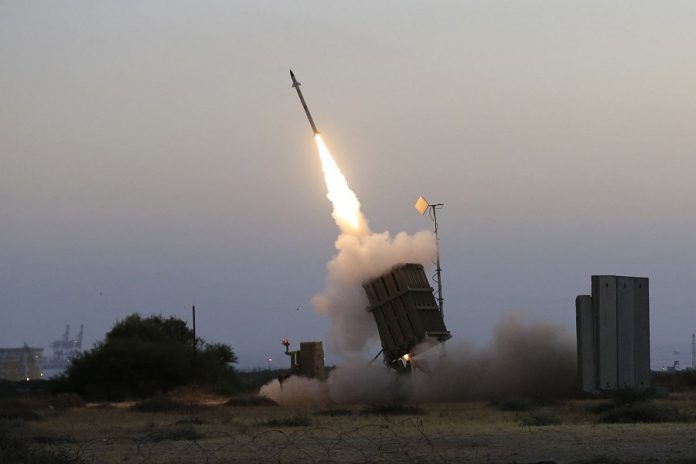The ongoing
Russia-Ukraine war, which began in February 2022, has forced many
NATO countries to strengthen their defense systems.
Romania, a NATO member bordering Ukraine, Moldova, and the
Black Sea, is now taking a major step by confirming the purchase of
Israel’s Iron Dome—a highly effective
short-range air defense system.
This deal makes
Romania the first European country to acquire and deploy the
combat-proven Iron Dome, a system that has successfully protected Israeli cities from missile and drone attacks.
€2 Billion Iron Dome Contract Confirmed
Romania’s new
Defense Minister Ionuț Moșteanu confirmed the decision on
national broadcaster TVR. The government is expected to sign a
contract with Rafael Advanced Defense Systems, the manufacturer of Iron Dome, by
autumn 2025.
The deal, valued at over
€2 billion (approx. $2.34 billion), includes a full
Very Short and Short Range Air Defense (VSHORAD/SHORAD) setup. This system is designed to protect against
rockets, drones, cruise missiles, and other short-range aerial threats.
Why Romania Needs the Iron Dome
Romania already uses
U.S.-made Patriot missiles for long-range threats. However, it lacks an efficient
short-range defense system—a critical gap the Iron Dome will fill.
“These are the missile systems we urgently need but do not currently have,” said Minister Moșteanu.
The Iron Dome’s quick response,
selective targeting, and
low operating costs make it ideal for Romania’s needs. The system only intercepts missiles that pose a
real threat to life or infrastructure, saving both time and resources.
What Romania Will Receive
The Iron Dome package for Romania will include:
-
- Multiple interceptor batteries with Tamir missiles
-
- Command-and-control systems for quick tracking and engagement
Romania will also receive the
SPYDER variant, which can launch
Python-5 and
Derby missiles for
short- and medium-range defense. The system will be
mobile, allowing it to quickly protect airbases, government buildings, and critical infrastructure.
Other Bidders Disqualified
The contract was awarded after a
restricted tender managed by Romania’s defense agency
Romtehnica in 2023. Competing bids from
Germany’s IRIS-T and
France’s VL MICA and Mistral 3 were disqualified due to high costs. Although Rafael’s offer was above Romania’s initial budget, it was considered the
most cost-effective and capable option.
Boosting Romania’s Black Sea Defense Strategy
This move is part of a larger effort to strengthen
Romania’s defense posture. In 2025, Romania allocated nearly
30% of its defense budget to procurement and modernization. In addition to the Iron Dome, Romania plans to:
-
- Upgrade naval forces with missile-equipped corvettes
-
- Deploy mobile SHORAD platforms
-
- Enhance Black Sea maritime security
Romania is also home to one of NATO’s
multinational battlegroups and hosts growing
intelligence and surveillance operations in coordination with
Bulgaria and other allies.
How Iron Dome Strengthens NATO
Once deployed, Romania’s Iron Dome batteries will connect to
NATO’s integrated air and missile defense network, increasing the region’s overall protection. This move reflects
Romania’s shift from a buffer zone to a key NATO defense pillar on its southeastern flank.
About Iron Dome: Combat-Tested and Trusted
Developed by
Rafael and Israel Aerospace Industries, Iron Dome is one of the
world’s most battle-proven air defense systems. Since 2011, it has intercepted over
90% of incoming threats in real conflicts.
Each unit includes:
-
- Tamir missile launchers (up to 20 per unit)
-
- A battle management system for rapid threat analysis
The system is unique in its ability to
analyze and respond within seconds, intercepting only real threats and ignoring projectiles that will land in empty areas.
Strategic Importance of the Black Sea
The
Black Sea is now seen as a critical NATO frontier, especially after
Russia’s annexation of Crimea and its 2022 invasion of Ukraine. Romania has long pushed for a
stronger Allied presence in the region.
However,
Turkey’s control of the Bosporus and Dardanelles, as per the
Montreux Convention, limits access for non–Black Sea navies, creating challenges for NATO maritime efforts. Still, Turkey’s recent restrictions on
Russian naval movements have aligned with NATO interests.
“There is no Black Sea strategy without Turkey. It is the strongest,” said Moșteanu, emphasizing the importance of regional cooperation.
Conclusion: Romania Rising as a NATO Leader
Romania’s Iron Dome deal marks a
new era in national and regional defense. By investing in
smart, layered, and mobile air defense systems, Romania is proving its commitment not just to self-defense, but also to
NATO’s collective security.
As threats from missiles, drones, and hybrid tactics grow, Romania is no longer just defending itself—it is helping shape the future of European defense.















